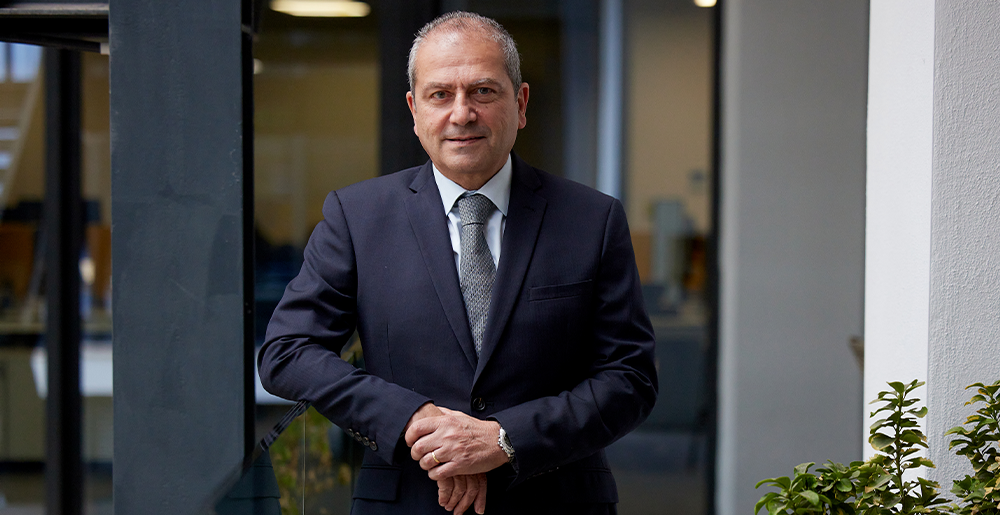Recently the MFSA launched its Strategic Statement outlining 27 priorities for the Authority for the next two to three years. To shed more light on the Authority’s strategy, NewsHub interviewed the MFSA's Chief Officer Strategy, Policy & Innovation, Dr Michael Xuereb, touching upon the Authority’s role in sustaining a resilient financial sector and in combating money laundering and the financing of terrorism as well as measures the Authority will take to ensure customers are treated fairly.
The Strategic Statement outlines 27 priorities for the MFSA for the next two to three years. How have these been identified?
Early preliminary discussions focused on the MFSA’s longer-term objectives in strategic areas and drew on management’s assessment of upcoming regulatory commitments, strategic projects already in hand, as well as current trends, risks and developments in the market. An initial set of strategic priorities was then prepared and discussed internally within the various functions together with the overall strategy. Following this feedback, consultations were held with representatives of industry associations and relevant public institutions.
The attainment of the strategic priorities is highly dependent on the internal capabilities of the Authority. How will the Authority ensure that it attracts and retains the best talent and stays ahead of the curve in terms of technological development?
To effectively regulate a sector as complex and dynamic as financial services one must be able to attract and retain a skilled and experienced workforce and have the necessary tools to carry out the expected standard of oversight and supervision. Our strategy addresses these priorities and puts them on the same level as our business-related priorities. The emphasis on the human element is clear and firmly focused on the well-being of our employees, ongoing professional development and fostering a positive work environment and organisational culture. Our digital transformation strategy seeks to invest in the right technology and infrastructure, to ensure that management systems and supervisory processes can meet industry challenges. Both these factors are crucial to the success of our strategic efforts and are integral parts of our management and operational framework.

How does the MFSA plan to enhance its supervision in the coming years?
The Strategy aims to ensure effective supervision, which must constantly be vigilant for new risks. This sense of awareness must be ingrained in our risk-based approach not only triggering the timely deployment of supervisory tools when the case arises, but also inducing changes in our risk models, or possibly even in our rulebooks, whenever this is necessary.
The overall objective also requires that we develop the metrics to measure, recognise and improve the level of effectiveness in all three areas of supervision: macro-prudential, micro-prudential and conduct of business.
How is the MFSA catering for expected trends in the international and domestic market, such as new business models, digital finance or sustainable finance, in its Strategic Statement?
The Statement takes a long-term view of these trends and their interplay. It defines high-level objectives to harness the unfolding opportunities associated with these trends while managing and keeping the identified risks under review. As the scenario continues to evolve, the Statement provides a shared understanding of the underlying trends and sets out clear, medium-term regulatory priorities. This places us in a better position to take concrete and timely steps to ride this wave of change.
What role will combatting AML and CFT play in sustaining a resilient financial sector?
The Authority is taking a two-pronged approach to this area - contributing to and leveraging the national strategy and collaborating with national and EU authorities to promote convergence and coordination within the strategic framework provided by the AML-CFT Legislative Package and the new EU Anti-Money Laundering Authority (AMLA) which is due to be launched in 2024.
The stability and robustness of the financial services industry is strongly dependent on trust. What measures will the MFSA be taking to ensure that customers are treated fairly and financial products are distributed appropriately?
Trust is everything in this business. We set clear expectations for financial operators to ensure that customers are treated fairly at all times, and take prompt corrective action to keep wayward operators in check. Without compromising on the high standard of conduct expected, we are committed to setting clear expectations and acting in a preventive manner by collecting the necessary data and taking risk-driven initiatives to identify and address unfair practices and other weaknesses in the market. Here too we need to assess the outcomes and measure our effectiveness in this regard. We are also committed to raising the level of awareness among consumers, helping them understand the standard of service that should be expected of their financial service providers and to make the right choices and decisions when called upon to do so.
The MFSA places engaging with the public as one of its strategic objectives. Why is this and how will the Authority seek to improve its engagement?
The MFSA engages with various stakeholders on a regular basis. That said, it is important that the Authority’s message is consistent with its strategy and helps reinforce the implementation of its strategic priorities through the information it shares with the public, and the feedback gathered in the process. This includes focused consumer initiatives, consultation on legislative and other development initiatives, regulatory briefings, as well as professional training initiatives that are aligned with the objectives and outcomes we are aiming to achieve.

